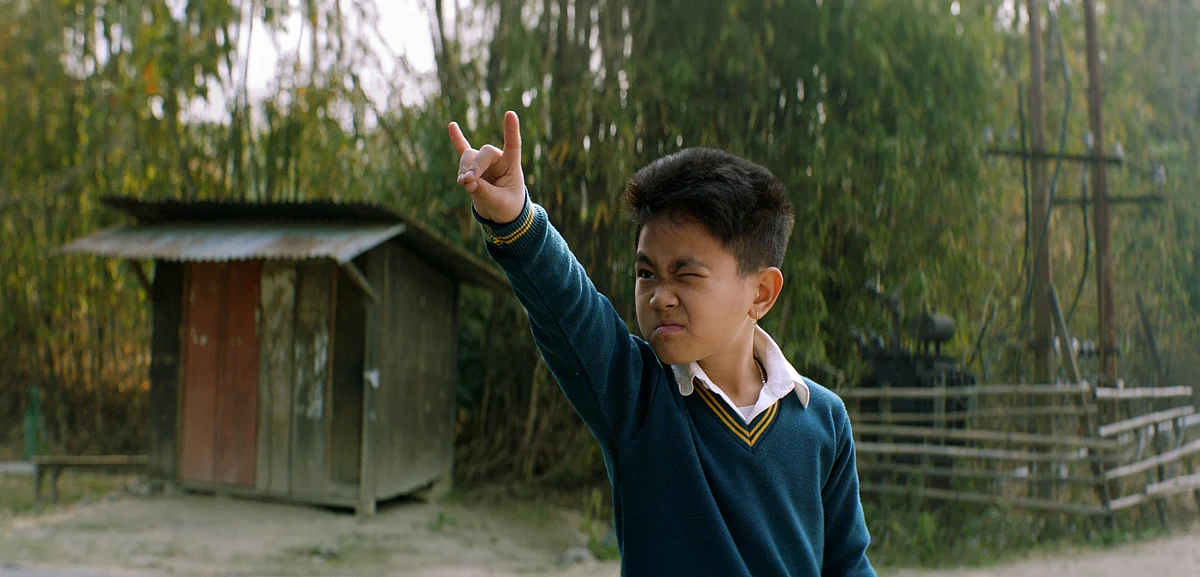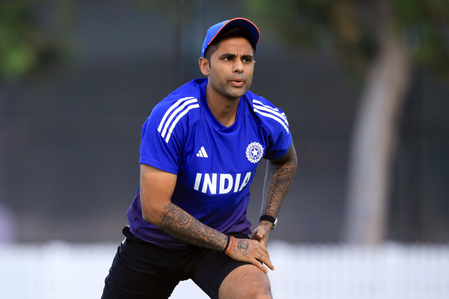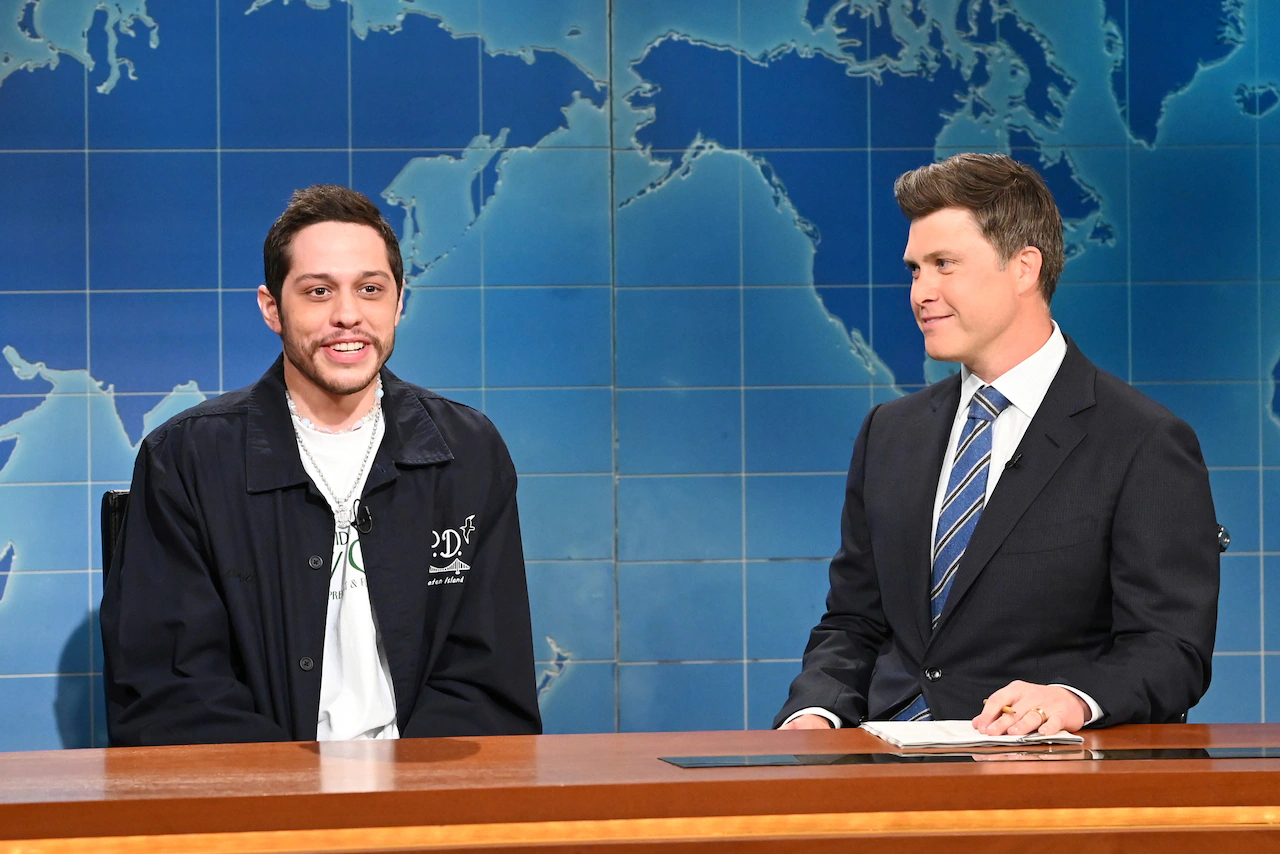By Abbas Momin
Copyright thequint

Right off the bat, it’s hard not to root for a film like Boong. Firstly, it’s a film that is familiarising many like myself who claim to be living in ‘mainland’ India with a region of the country that is less represented in mainstream films, in this case – Manipur.Secondly, it’s a film led by a school-going protagonist. Despite a rich tradition of children’s stories—and a population of approximately 27 crore children who are currently in school—there is an immense dearth of children’s films in India. Thirdly, it marks the debut feature of a female director whose resume as an assistant director includes landmark Hindi films like Rang De Basanti and Luck By Chance. It’s heartening to see a personal film, with a modest budget being backed by producers Farhan Akhtar and Ritesh Sidhwani of Excel Entertainment. But my good natured wishes for the film aside, I am happy to report that Laskhmi Priyadevi’s Boong is a charming coming-of-age tale that despite dealing with some complicated social and political issues never loses its focus and succeeds in doing that most difficult of storytelling tasks: educating through entertainment.Gugun Kigpen plays Brojendra AKA Boong, a boy determined to give his mother Mandakini (Bala Hijam) a special gift: reuniting her with his father, whose whereabouts have long been a mystery.Refusing to believe an untoward piece of news about his father, Boong sets out to unravel the truth. Aiding him in his quest are his best friend Raju (Angom Sanamatum) and a girl from his class Julianna (Nemetia Ngangbam), on whom Boong clearly has a crush—despite repeatedly insisting with school boy-ish haughtiness that he “hates girls”.The performances are strong all around. Kigpen shines in the title character, deftly shifting between mischievousness and heartfelt innocence. Since the film rests heavily on his shoulders, his performance is crucial—and he delivers with complete assurance. His chemistry with Sunamatum is splendid, their bond forms the core of the story.There are a few tricky scenes where the two friends, in the moment of heat, end up saying mean things to each other—as young boys often tend to do. But every time they rekindle, they emanate warmth on the screen. Vikram Kocchar, though in a small role, leaves a mark every time he is on screen with his gentleness. Lakshmi has mentioned in interviews that her characters are drawn from real people she knew growing up. Which is perhaps why a Rajasthani garment seller, or an Anglo Indian family, do not feel one-dimensional. My personal favourite was the unbothered, betel leaf chewing lady who’s the owner of a beaten down lodge. The world these characters inhabit also feels lived-in.madAbandonment as a theme runs deep in Boong. A father abandoning his son, friend abandoning another friend, a nation abandoning a state, a state abandoning its citizens. The film coveys information about the ethnic, regional, and national tensions without ever being heavy handed. It comes through in clever ways and is woven seamlessly into the scenes. A school trip, for example, offers a glimpse of Manipuri history and folklore, while a scene set in a clandestine video parlour sheds light on the stringent rules around movies—a revelation for me.Cinematographer Tanay Satam, of Made in Heaven, and Kho Gaye Hum Kahaan fame, infuses this in the film’s visual language. Scenic valleys are interspersed with columns of marching army personnel, while bustling markets and classrooms are juxtaposed with shots of Boong and his mother riding quietly on a bike, catching a few moments of solace in the day.The director also knows how to keep things light and exciting. This is by no means a dreary film—there’s a constant barrage of jokes and a sense of brevity to the proceedings, with plenty of laugh-out-loud moments. For example, a sequence involving a hearse and the two young boys had me in splits, as did the the scathingly glorious punchline delivered by Mandakini while going through Boong’s exam results. The filmmakers are keenly aware that the bigger emotional moments land only when the audience is already swept up in the film’s playful humour.Boong is ultimately a plea for inclusion and diversity. What I took away from it was that when people move, they take their worlds and identities with them, and the search for a better life often leads them to paths they may be unaware of. Seen through a child’s eyes, these realities take on a literal form—border check points, and identity cards. The film’s finest curve ball comes when Boong and Raju end up in front of a night club entertainer. Giving away anything more would be spoiling the fun so I’ll let you discover it yourself but I will say it leads to a cover version of Madonna’s ‘Like a Virgin’ that’s for the ages.If one had to pick nits, one can point to the plot convenience of how many adult characters let two young kids roam unsupervised, or to the artistic liberties are taken to make some sequences appear more glamorous then they likely would be in reality. One could also note that, based on real news headlines, the law and state response to certain scenarios would probably be much harsher. But these would be minor nitpicks.Boong is a refreshing change at the cinemas from the muscular big budget action spectacles. It exemplifies a unique, singular vision from a bright filmmaker who we should all be looking forward to.Though the film released in theatres across major Indian cities on 19th September, I was lucky enough to hear Lakshmi present the film at last year’s Mumbai film festival where she described how the ethnic violence in Manipur erupted merely hours after they wrapped up shooting, and how for months it was difficult for her to look at the footage because many of the places the film was shot in have been destroyed and even people from the crew have suffered. Which means Boong has sadly become a piece of archival documentation. In this context the film’s attempt to make a case for togetherness and reconciliation as seen through a child’s eyes is even more relevant.(Abbas Momin is a stand-up comic, podcast producer, and freelance writer with over a decade of experience in digital media, comedy, and content creation. This is an opinion piece and the views expressed above are the author’s own. The Quint neither endorses nor is responsible for the same.)’I Was Insecure Because I Didn’t Speak English’: ‘Homebound’ Actor Vishal Jethwa



